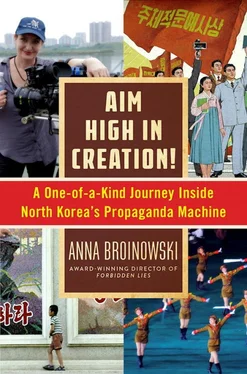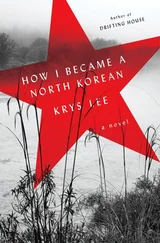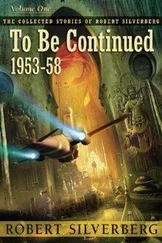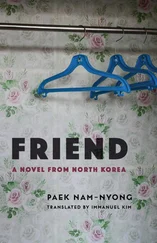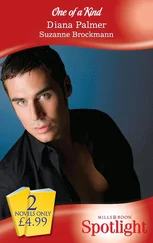In potboiler prose, Norma reinvented herself as a Jordanian hairdresser, racked with guilt for her part in the secret affair that led to the brutal murder of her best friend, Dalia. She described the unisex hair salon in Amman where she and Dalia had worked; the secret trysts she’d arranged between Dalia, a Muslim, and her handsome Christian lover, Michael; the Gauloises they’d nervously smoked in Dalia’s bedroom the night they realised her brothers were onto them; the agonising sprint Norma had made to Dalia’s house on Nablus Street the day she disappeared—only to discover her friend’s bloody corpse being dumped in the back of an ambulance.
Dalia had been stabbed twenty-seven times by her father and brothers in bed while she slept, for having dishonoured them by falling in love with an infidel. She was still a virgin when she died. The book ended with Norma’s outrage that her chaste and innocent friend could be slaughtered by her own family, yet they could be let off by an archaic section of Jordan’s penal code, which allows men to commit “crimes of honour” against female relatives with impunity.
Written in the halting style of someone using English as a second language, Norma’s book was utterly convincing, provided you knew nothing about the Middle East. Taking a gamble that Western publishers wouldn’t realise unisex hair salons did not exist in Jordan when Dalia was alive, let alone Gauloises, Norma googled literary agents alphabetically. She explained she was a Jordanian virgin on the run from Islamic extremists who’d put a fatwa on her head for speaking out. She feared she’d be killed, but hoped her humble book would help Dalia’s legacy survive. By the time Norma got to “F,” she had snared superstar New York agent Christy Fletcher.
Forbidden Love: A Harrowing True Story of Love and Revenge in Jordan was the most successful hoax of Norma’s career. It secured her a six-figure advance with Simon & Schuster, Random House, and Transworld, and publishing deals in fifteen countries. With George W. Bush beating up the case for bombing Baghdad on the grounds that it would “liberate” the apparently oppressed women of Iraq, Western readers were hungry to know more about the Arab world. Norma’s melodramatic page-turner, with its barbaric Muslim men and suffering, burqa-clad women, was an overnight bestseller.
Norma swanned around the world on a five-star publicity junket—inspiring and reducing readers to tears with her vulnerability and charm. She told funny stories about what it was like for a thirty-year-old Arab virgin to wear a miniskirt, see skyscrapers, and drink Bloody Marys for the first time. She blushed when male journalists asked whether she’d “ever been kissed,” and made female fans swoon with tender confessions that maybe, if she found the right man, she would “quite like to have a child.” As David Leser, one of many seasoned journalists Norma snowed, put it: “She was like a rock star. If it had been a concert, they’d have had a mosh pit.”
Meanwhile, Hans Blix was scouring Iraq for Saddam’s WMDs—and failing to find them. Dick Cheney’s daughter Elizabeth (the straight one), determined to win hearts and minds to her daddy’s unpopular war, saw Norma Khouri as a useful figure to have in the public eye. As the head of the State Department’s Bureau of Eastern Women’s Affairs, she wrote an emotional letter of support for poor, hunted Norma, and sent it to the Australian immigration minister. Norma’s passport indicated she was married with two American kids and therefore telling big fat lies, but the truth should never be allowed to get in the way of a lucrative literary hoax—or, indeed, the propaganda aims of a pro-war government. Australia, a country renowned for throwing Arab refugees into flyblown detention centres the minute they wash ashore, promptly granted Norma permanent residency—in a waterfront McMansion on Queensland’s Bribie Island.
From her tropical oasis, Norma worked her newfound celebrity on the Australian chat-show circuit, fuelling hatred of Muslims in the hearts of her adoring fans. Between times, she enjoyed lazy afternoon barbeques with John and the kids, sipping pineapple daiquiris by the pool.
Not bad, for an alleged two-bit scammer from Chicago’s Southside.
By the time she was exposed by journalist Malcolm Knox in the Sydney Morning Herald in 2004, I knew I had to make a film about Norma. She had not only deceived five hundred thousand readers; she’d convinced the best minds in media and publishing to support her lies. As tens of thousands of innocent Iraqis continued to be slaughtered in the disastrous war, Forbidden Love was pulped by publishers all over the world—except for the pragmatic French, that is, who slapped a “Fiction” sticker on the cover and kept on selling.
Norma dumped her children with a kind-hearted neighbor on Bribie Island, extracted enough money for a one-way ticket, and fled to Chicago, where she set about gathering evidence to prove that her story was true, and threatening legal action against anyone who disagreed.
But Norma’s “proof” never materialised, and I was hooked. What kind of person, I wondered, could be so amorally brilliant that while on the run from the FBI, she reinvents herself as an uneducated Arab virgin, writes a bestseller, and convinces the whole world she’s telling the truth? Was she mad, evil, or just misunderstood? A ruthless femme fatale, as the media portrayed her, or a passionate crusader who had fudged some facts to educate the West about honour crimes? Or was Norma simply a child of the Jerry Springer generation, an opportunistic confabulist from the wrong side of the tracks, who knew that airing your pain in public is the quickest ticket to fame?
I had to make a film to find out. The conviction filled me, as it always does, with exhilaration, and a queasy sense of dread.
Banking on the chance that Norma would be missing the limelight, I wrote to her film noir–ish address ( janedoe@lycos.com) and asked if she’d like to work with me. I told her I would interview her detractors—but she would have equal space to rebut them, and could redeem herself to her betrayed fans in the process. Norma didn’t just jump at the offer; she promised the jackpot: if I took her to Jordan, she’d prove, on camera, that Dalia had existed, and that her murder was real.
The 1940s master grifter General Strosnider once observed that you can’t con an honest man. I was, I’m ashamed to admit, as greedy for Norma’s carrot as any other mark. If she were telling the truth, I had a scoop. If she was lying, I already had a fascinating film. So I let Norma convince me that Jordan’s secret police, the Muhabarat, still wanted to kill her, and obeyed her extravagant security demands. I paid thousands for a hunky American Norma claimed was a “military-trained” bodyguard. I hired expensive demountable cameras in London. I bought burqa “disguises” in Sydney. I rented a souped-up escape van with tinted windows in Amman. Norma met me in Jordan on the first day of our shoot, as promised. And then, of course, she conned me too.
The whole crazy journey unspools in my film, Forbidden Lie$, which plays like a documentary version of Catch Me If You Can . Norma leads me on a high-stakes goose chase through fiction, fact, and faction like DiCaprio’s mercurial con man, Frank Abagnale Junior, and I bumble along three steps behind like Tom Hanks’s FBI agent, trying to catch her out. Lie$ had its first screening at the Adelaide International Film Festival to a full house of expectant viewers and a row of nervous investors. Thanks to a technical glitch, it ran at the wrong frame rate. The effect was like Chinese water torture: each careful edit, each CGI sequence we’d spent weeks perfecting, played on that massive screen in excruciatingly subtle slow-mo. A critic published a lukewarm review in Variety. My investors immediately demanded a recut.
Читать дальше
